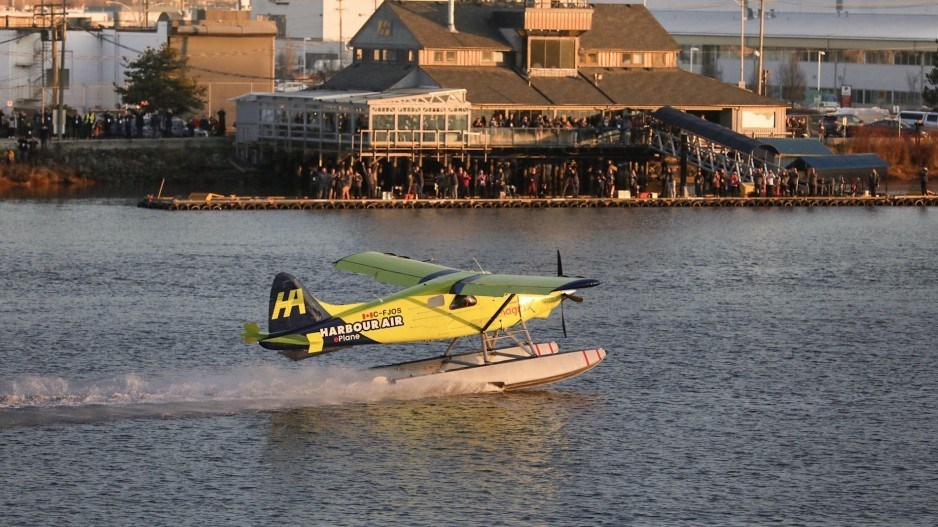BC Environment Minister George Heyman was joined by NDP candidate Brenda Bailey in a campaign whistlestop at Harbour Air Thursday to talk about the NDP’s CleanBC plan and the company’s efforts to electrify its fleet of floatplanes.
They made no new major campaign pledges, so the visit was essentially an endorsement event, with Harbour Air’s vice president of flight operations and safety, Eric Scott, thanking both the NDP and federal governments for their support in trying to get electric airplanes off the ground.
In December 2019, Harbour Air conducted the inaugural flight of its first battery powered airplane. The plan is to eventually electrify the company’s fleet of float planes.
“As Harbour Air moves forward with our program, we really appreciate the support we get from the federal and provincial governments,” Scott said, pointing to the removal of PST on components for the electrification of aviation as one example.
Harbour Air has been working with an American company, magniX, to outfit floatplanes with electric motors and batteries.
A number of technical and regulatory challenges must be overcome before Harbour Air can start carrying passengers on battery powered floatplanes. One of those challenges is getting Transport Canada approval.
There are also engineering challenges with battery powered airplanes. One is getting the initial thrust needed to get a fully loaded electric plane off the ground. That requires drawing a large amount of electricity in a short period of time.
NASA is working to address the problem of “thermal runaway” that can cause lithium-ion batteries to catch fire by developing a battery that has built-in circuit breakers to prevent overheating. That's just one of the technical challenges being addressed in the race to get electric airplanes off the ground.
Aviation accounts for about 2% of global greenhouse gas emissions, but is one of those sectors that is hard to decarbonize.
It’s unlikely large passenger jets will be powered by electricity alone anytime soon. But for smaller planes and shorter flights, like the ones Harbour Air conducts, battery power appears to be achievable in the near-term.
“Every piece of support that we get helps move the project forward,” Scott said.
Brenda Bailey, a technology entrepreneur and NDP candidate for Vancouver-False Creek, said the NDP removed the PST on electric aircraft components and said a re-elected NDP government would expand the specialty use vehicle incentive to encourage fuel switching in sectors like trucks, buses and ports.
“Our support will help accelerate the adoption of cleaner, more efficient air travel in B.C. and provide an example for the world,” Bailey said. “These investments also help B.C. businesses to create good jobs while helping our province meet our zero net target for reducing carbon pollution.”
Bailey acknowledged that B.C. had been recognized as a leader on climate change policies under the Gordon Campbell Liberal government, but said the Liberals have since abandoned their leadership position.
“They broke some new ground on climate action, which it makes it all the more disappointing to see that Andrew Wilkinson has abandoned these plans,” Bailey said.
The BC Liberal platform commits to “re-establish BC as a global climate leader,” as well as to decarbonization efforts such as energy retrofitting for buildings, renewable energy, expanding public transit and investing in electric vehicle charging infrastructure.
As for carbon taxes, the Librerals commit to “review scheduled increases in the carbon tax in light of the current economic recession,” which suggests a Liberal government would continue the freeze on carbon tax hikes that the NDP government has put in place, and harmonize them with federal carbon pricing, which is scheduled to rise to $50 per tonne by 2022.
B.C.'s carbon tax was set to rise to $45 per tonne in April, but the hike was deferred to April 2021 by the NDP government as part of its pandemic economic recovery efforts.




